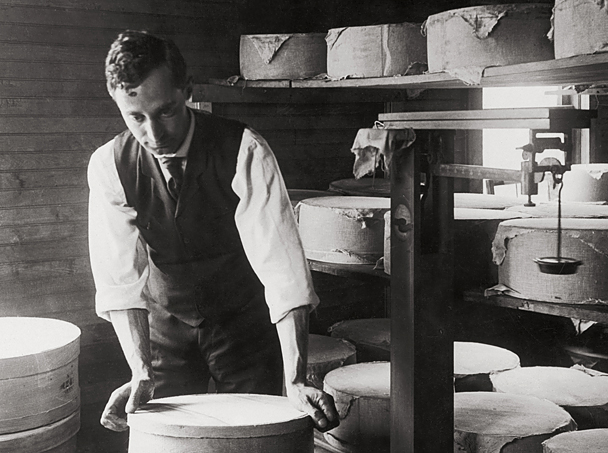It’s no secret that Pennsylvania has one of the most important and diversified agricultural economies in the country, or that historically the state was well known for its high-quality butter, milk, and cheeses. But with the consolidation of the dairy industry into farmers’ co-ops, and creameries bought out by bottling plants in the early 1900s, the state drifted away from the idea that terroir and craftsmanship were keys to good cheesemaking.
All that has changed. With the encouragement of the Pennsylvania Association for Sustainable Agriculture, a politically powerful farm-advocacy organization, there is now an embarrassment of European-style raw-milk cheeses available—including well-aged soft cheeses similar to Brie, richly flavored Cheddar-style cheeses, blue cheeses with a truly floral fragrance, and goat cheeses with sophisticated textures and aromas.
Through an ongoing series of seminars, cheese tastings, and workshops for the farmers themselves, PASA and the Pennsylvania Farmstead & Artisan Cheese Alliance have led the way in showing small producers how to turn out great artisanal cheeses. The results have been astounding, primarily because the soils of Pennsylvania produce the kind of grasses that encourage good flavor in cheese once the technique for capturing that essence of terroir is perfected; the cheeses are also being produced organically according to traditional farming methods.
Many Pennsylvania chefs get the cheeses through Tria—a wine, beer, and cheese café in Philadelphia—which brokers for a number of producers. Many of the cheesemakers, though, also sell directly to consumers.
Once PASA and the artisan cheese alliance work out the finer points of affinage and marketing, the next goal is to re-create some of the historical cheeses for which the region was once famous, such as chive-flavored sheeps’-milk cheese; real cream cheese; and Pennsylvania Dutch hand cheese, or Handkees, which is made from cows’ milk.



 Pinterest
Pinterest


